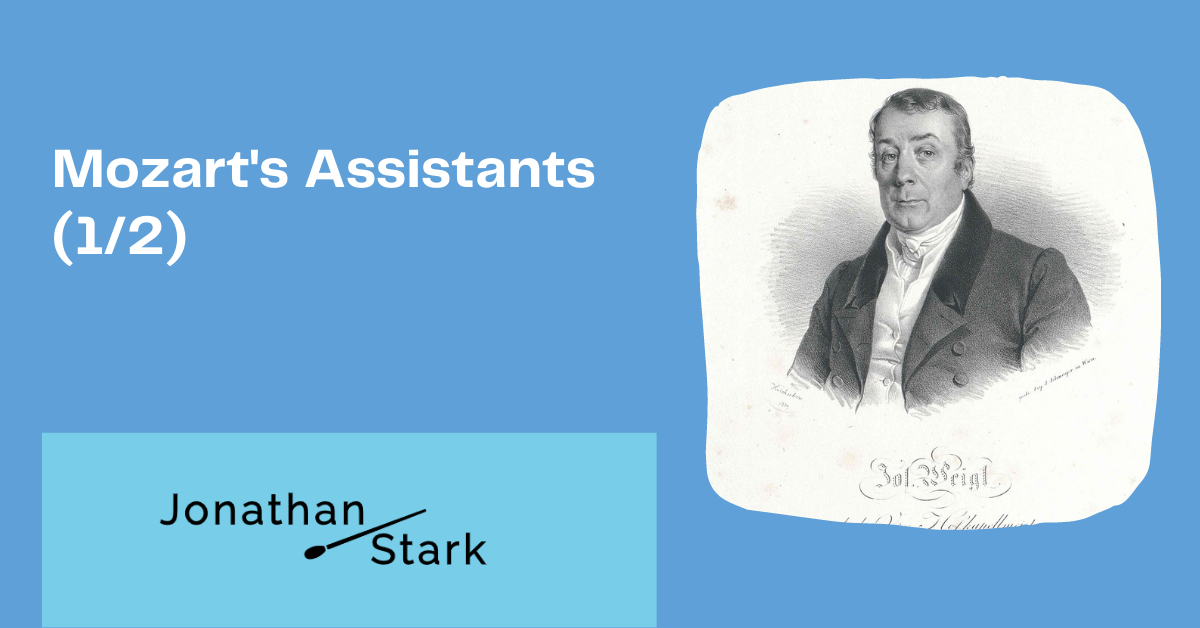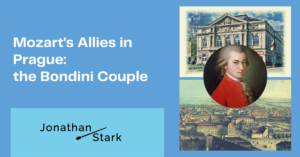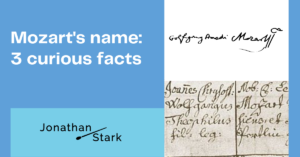Mozart’s days were packed with work. How was that to be managed? The answer: he had assistants. Two of them remained loyal to him until his last breath.
In 1786, Mozart worked on an explosive project: together with his librettist Lorenzo Da Ponte, he created the opera Le nozze di Figaro. A scandal seemed inevitable, because the French original of the play (“La Folle Journée” by Beaumarchais) contained just about everything that the Viennese censors did not like: criticism of the nobility. An immoral count. Rebellious servants.
But that was not all: Mozart’s music in Figaro was also unusually difficult to play for the time. So it was a good thing that a very capable musical assistant was employed at the Burgtheater in Vienna…
Joseph Weigl
…namely Joseph Weigl, who was only 20 years old. The young musician was remarkably well connected in the music scene: Joseph Haydn (Mozart’s friend and father figure) was his godfather and his patrons included not only the music scholar Johann Georg Albrechtsberger (whom Mozart held in high esteem) but also the composer Antonio Salieri (whom Mozart held in less esteem 😉 ).
Joseph Weigl assisted Mozart in the rehearsals of Figaro at the Burgtheater in Vienna, obviously to the master’s complete satisfaction: Mozart conducted the premiere himself, but handed over the conducting of all subsequent performances to Weigl. A sign of trust.
Figaro was well received by the Viennese public, but in Prague it was really acclaimed. So much so that Mozart received a commission from Prague for a new opera: Don Giovanni.
After the successful premiere of Don Giovanni in Prague in 1787, Emperor Joseph II wanted the opera to be performed in Vienna as well. Three guesses who Mozart chose as his assistant for the Vienna rehearsals?
Of course, Joseph Weigl. Mozart and Weigl remained closely connected until Mozart’s death. Weigl even assisted with a third opera production, Così fan tutte (in 1790).
The early collaboration with Mozart was a career boost for Weigl. After Mozart’s death, he led a life that was both successful and unexciting. Step by step he climbed the career ladder: First he became theatre kapellmeister at the Viennese court theatres, then first theatre kapellmeister and in 1827 even vice court kapellmeister, before retiring in 1839. He died in Vienna at the age of almost 80.

Jonathan Stark – Conductor
Hello! I'm Jonathan Stark. As a conductor, it is important to me that visits to concerts and operas leave a lasting impression on the audience. Background knowledge helps to achieve this. That's why I blog here about key works of classical music, about composers, about opera and much more that happens in the exciting world of music.







